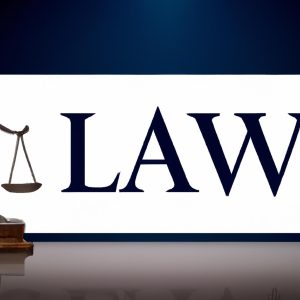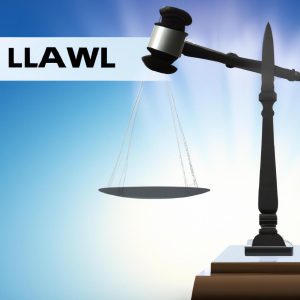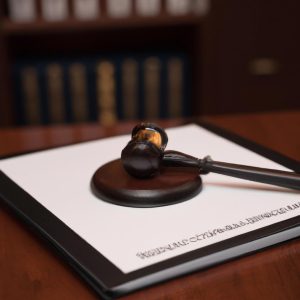As seasoned attorneys at Morgan Legal Group in New York City, we frequently encounter complex scenarios involving real estate ownership. One such situation that often poses a challenge is when an individual’s name is on the mortgage but not on the deed of a property. In this article, we will explore the implications of this discrepancy and provide valuable insights for navigating this common yet intricate legal territory. So, grab a cup of coffee and settle in as we unravel the complexities surrounding ownership rights in real estate.
Understanding the Legal Implications of Having Your Name on the Mortgage but Not on the Deed
When your name is on the mortgage but not on the deed, it’s essential to understand the legal implications of this situation. This arrangement can have significant consequences, affecting your rights and responsibilities as a homeowner. Here are some key points to consider:
- Ownership Rights: Without your name on the deed, you may not have legal ownership of the property, even if you’re responsible for the mortgage payments.
- Lack of Control: Not being on the deed means you may have limited control over the property, such as the ability to make decisions about its sale or transfer.
Potential Risks and Liabilities Associated with Being a Mortgage Co-Borrower without Ownership Rights
When it comes to being a mortgage co-borrower without ownership rights, there are several potential risks and liabilities to consider. One major concern is that as a co-borrower, you are equally responsible for repaying the mortgage, even if you do not have any ownership stake in the property. This means that if the primary borrower defaults on the loan, you could be on the hook for making payments to avoid foreclosure. Additionally, since your name is on the mortgage, your credit score could be negatively impacted if payments are missed.
Furthermore, as a co-borrower without ownership rights, you may not have any say in important decisions related to the property, such as selling or refinancing. This lack of control can leave you vulnerable to the decisions of the primary borrower, which could have financial implications for you in the long run. It is important to carefully consider the risks involved in being a mortgage co-borrower without ownership rights and to seek legal advice to fully understand your rights and responsibilities in this situation.
Strategies to Protect Your Financial Interests When You’re Not Listed on the Deed but Responsible for the Mortgage Payments
If you find yourself in a situation where you are responsible for making mortgage payments but your name is not listed on the deed, it’s important to take steps to protect your financial interests. While this scenario can be complex, there are strategies you can implement to safeguard your investment.
One way to protect your financial interests is to have a legal agreement in place with the homeowner outlining your rights and responsibilities. This could include a cohabitation agreement or a formal contract specifying your contributions towards the mortgage. Additionally, consider obtaining life insurance on the homeowner to ensure that you are covered in the event of their passing. Lastly, it may be beneficial to consult with a legal professional to explore all available options and ensure that your interests are protected.
Consulting with a Knowledgeable Real Estate Attorney to Navigate Complex Property Ownership Issues
When facing complex property ownership issues such as being named on a mortgage but not on the deed, it is crucial to seek guidance from a knowledgeable real estate attorney. At Morgan Legal Group, we specialize in helping clients navigate these intricate legal matters with precision and expertise.
Consulting with our team of experienced attorneys can provide clarity and peace of mind when dealing with property ownership discrepancies. Our attorneys will carefully review your situation, analyze the legal implications, and guide you through the necessary steps to protect your interests. With our guidance, you can confidently address any challenges related to property ownership and make informed decisions for the future.
Q&A
Q: What does it mean to have your name on the mortgage but not on the deed?
A: Having your name on the mortgage but not on the deed means that you are legally responsible for repaying the loan, but you do not have ownership rights to the property.
Q: Why would someone have their name on the mortgage but not the deed?
A: This situation can arise when a person wants to help someone else qualify for a loan but does not want to have ownership in the property. It can also happen in divorce situations where one party agrees to take on the mortgage but does not want to be a co-owner of the property.
Q: What are the implications of having your name on the mortgage but not on the deed?
A: The main implication is that you are responsible for making the mortgage payments, even though you do not have any ownership rights to the property. If the owner defaults on the loan, the lender can go after you for repayment.
Q: Can you transfer ownership of the property if your name is only on the mortgage?
A: In most cases, you cannot transfer ownership of the property if your name is only on the mortgage. The owner listed on the deed has the legal right to sell or transfer the property.
Q: How can you protect yourself if your name is on the mortgage but not on the deed?
A: It is important to have a written agreement with the property owner outlining your rights and responsibilities. You may also want to consider consulting with a legal professional to ensure that your interests are protected.
Final Thoughts
In conclusion, navigating the complexities of property ownership can be daunting, especially when one’s name is on the mortgage but not on the deed. It is important to understand the implications and potential risks involved in such a situation. Seeking legal advice and exploring different options can help ensure that your interests are protected and your rights are upheld. Remember, when it comes to property ownership, clarity and proper documentation are key. Thank you for reading and we hope this article has been helpful in shedding light on this topic.
As a potential homeowner, you may have come across the term “name on mortgage but not on deed” in your research. This concept may seem confusing, but it is more common than you think. In this article, we will dive deeper into the meaning of being on a mortgage but not on the deed, its implications, and what you need to know if you find yourself in this situation.
First, let’s define these terms. A mortgage is a loan taken out to buy a house, and it is secured by the borrower’s property. The person or entity who is granted the mortgage has the legal right to foreclose on the property in case of default. On the other hand, a deed is a legal document that shows ownership of a property. It names the individuals or entities who hold the title or have a legal interest in the property.
So what does it mean to be on a mortgage but not on the deed? This situation often arises when more than one person is involved in the purchase of a property. For example, a married couple may both be on the mortgage, but only one of them is listed on the deed. Or, a parent may help their child purchase a home and be named on the mortgage, but not on the deed.
Now that we have clarified the meaning of these terms let’s dive into the implications of being on a mortgage but not on the deed.
1. No legal ownership of the property
The most significant implication of not being listed on the deed is that you do not legally own the property. The deed is the legal document that proves ownership of the property, and not having your name on it means that you do not have any legal right to the property.
2. No entitlement to proceeds from the sale of the property
In case the property is sold, the proceeds will be divided according to the names listed on the deed. If your name is not on the deed, you will not be entitled to any portion of the sale proceeds, even if you are on the mortgage.
3. Limited decision-making power
As a mortgage is a loan secured by the property, both parties listed on the mortgage will have a say in decisions regarding the property, such as selling or refinancing. However, only the person or entity named on the deed has the ultimate decision-making power.
4. Potential for conflict
This situation can lead to potential conflicts between the individuals listed on the mortgage and the deed. If, for example, the individuals on the mortgage are in a dispute, the person listed on the deed can restrict access to the property or make decisions without consulting the other party.
So why would someone choose to be on a mortgage but not on the deed? Let’s explore some reasons for this arrangement.
1. Credit issues or financial constraints
Lenders may require a co-signer on the mortgage if the primary borrower has credit issues or financial constraints. In this case, the co-signer may be listed on the mortgage but not on the deed.
2. Estate planning purposes
Parents may help their child purchase a home but may not want their child to have full ownership until a certain point in the future. In this case, they may be listed on the mortgage but not on the deed.
3. Business partnerships
Business partners may choose to purchase a property together but only have one person listed on the deed for liability or tax purposes. In this case, both individuals would be listed on the mortgage but not on the deed.
So if you find yourself in a situation where you are on the mortgage but not on the deed, what can you do? Here are some options to consider.
1. File a quitclaim deed
If you want to be listed on the deed, you can ask the person or entity listed to add you through a quitclaim deed. This document legally transfers any interest in the property to another person.
2. Refinance the mortgage
If you and the person listed on the deed are no longer in a relationship or business partnership, you can consider refinancing the mortgage in your name. This will require you to qualify for the loan on your own, but it will give you ownership of the property.
3. Have a written agreement
If you are in a situation where you and the person on the deed are in conflict, it is essential to have a written agreement in place. This agreement should outline the responsibilities and decision-making power of both parties to avoid any potential conflicts.
4. Seek legal advice
If you are unsure of how to proceed or need assistance with any legal matters, it is best to seek advice from a real estate attorney. They can guide you through the process and ensure that your rights and interests are protected.
In conclusion, being on a mortgage but not on the deed is a common arrangement in property ownership. It can have various implications and may lead to conflicts if not handled appropriately. If you find yourself in this situation, it is essential to understand your rights and seek legal advice if needed. By being informed and proactive, you can ensure that your interests are protected in any property ownership arrangement.





